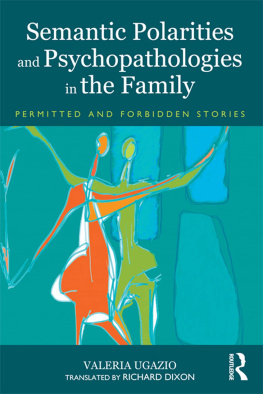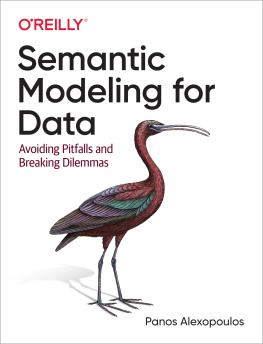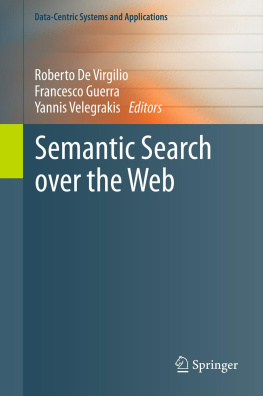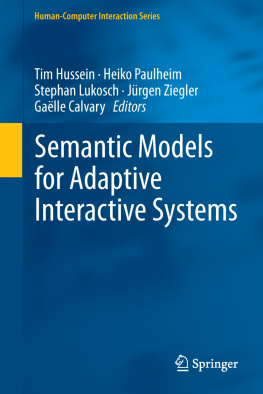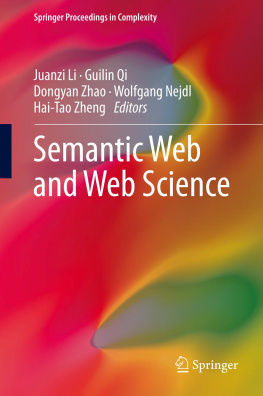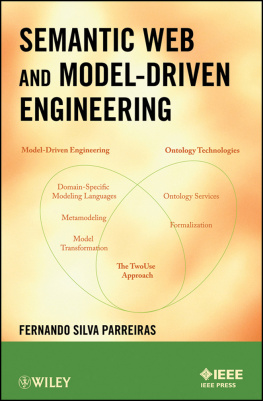Ugazio - Semantic polarities and psychopathologies in the family: permitted and forbidden stories
Here you can read online Ugazio - Semantic polarities and psychopathologies in the family: permitted and forbidden stories full text of the book (entire story) in english for free. Download pdf and epub, get meaning, cover and reviews about this ebook. City: London, year: 2013, publisher: Taylor and Francis;Routledge, genre: Home and family. Description of the work, (preface) as well as reviews are available. Best literature library LitArk.com created for fans of good reading and offers a wide selection of genres:
Romance novel
Science fiction
Adventure
Detective
Science
History
Home and family
Prose
Art
Politics
Computer
Non-fiction
Religion
Business
Children
Humor
Choose a favorite category and find really read worthwhile books. Enjoy immersion in the world of imagination, feel the emotions of the characters or learn something new for yourself, make an fascinating discovery.
- Book:Semantic polarities and psychopathologies in the family: permitted and forbidden stories
- Author:
- Publisher:Taylor and Francis;Routledge
- Genre:
- Year:2013
- City:London
- Rating:5 / 5
- Favourites:Add to favourites
- Your mark:
- 100
- 1
- 2
- 3
- 4
- 5
Semantic polarities and psychopathologies in the family: permitted and forbidden stories: summary, description and annotation
We offer to read an annotation, description, summary or preface (depends on what the author of the book "Semantic polarities and psychopathologies in the family: permitted and forbidden stories" wrote himself). If you haven't found the necessary information about the book — write in the comments, we will try to find it.
Ugazio: author's other books
Who wrote Semantic polarities and psychopathologies in the family: permitted and forbidden stories? Find out the surname, the name of the author of the book and a list of all author's works by series.
Semantic polarities and psychopathologies in the family: permitted and forbidden stories — read online for free the complete book (whole text) full work
Below is the text of the book, divided by pages. System saving the place of the last page read, allows you to conveniently read the book "Semantic polarities and psychopathologies in the family: permitted and forbidden stories" online for free, without having to search again every time where you left off. Put a bookmark, and you can go to the page where you finished reading at any time.
Font size:
Interval:
Bookmark:

PSYCHOPATHOLOGIES IN THE
FAMILY
The gap between psychotherapeutic practice and clinical theory is ever widening. Therapists still don't know what role interpersonal relations play in the development of the most common psychopathologies. Valeria Ugazio bridges this gap by examining phobias, obsessive-compulsions, eating disorders, and depression in the context of the family, using an intersubjective approach to personality. Her concept of semantic polarities gives a groundbreaking perspective to the construction of meaning in the family and other interpersonal contexts. At no point is theory left in the wasteland of abstraction. The concreteness of the many case studies recounted, and examples taken from well-known novels, will allow readers to immediately connect the topics discussed with their own experience.
Valeria Ugazio, PhD, is the Scientific Director of the European Institute of Systemic-relational Therapies, Milan, Italy and is Professor of Clinical Psychology and Coordinator of the Clinical Psychology Doctorate program at the University.
POLARITIES AND
PSYCHOPATHOLOGIES
IN THE FAMILY
Permitted and Forbidden Stories
Valeria Ugazio
Translated by Richard Dixon

First published in English 2013
by Routledge
711 Third Avenue, New York, NY 10017
Simultaneously published in the UK
by Routledge
27 Church Road, Hove, East Sussex BN3 2FA
Routledge is an imprint of the Taylor & Francis (Group, an informa business
2013 Taylor & Francis
The right of Valeria Ugazio to be identified as author of this work has been asserted by her in accordance with sections 77 and 78 of the Copyright, Designs and Patents Act 1988.
All rights reserved. No part of this book may be reprinted or reproduced or utilised in any form or by any electronic, mechanical, or other means, now known or hereafter invented, including photocopying and recording, or in any information storage or retrieval system, without permission in writing from the publishers.
Trademark notice: Product or corporate names may be trademarks or registered trademarks, and are used only for identification and explanation without intent to infringe.
First published in Italian by Bollati Boringhieri 2012
Library of Congress Cataloging in Publication Data
Ugazio, Valeria. Permitted and forbidden stories : semantic polarities and psychopathologies in the family / authored by Valeria Ugazio. 1 [edition].
pages cm Includes bibliographical references and index.
ISBN 9780415823067(hardback) ISBN 9780415823074 (paperback)
1. Personality disordersComplications. 2. Psychology, PathologicalCase studies. I. Title.
RC554.U33 2013616.8581dc23
2012039336
ISBN: 9780415823067 (hbk)
ISBN: 9780415823074 (pbk)
ISBN: 9780203552384 (ebk)
Typeset in Galliard
by Swales & Willis Ltd, Exeter, Devon
PART I
The Theoretical Model
PART II
Semantics and Psychopathologies
Valeria Ugazio PhD is a clinical psychologist and psychotherapist. She lives with her husband in Milan where she is director of the European Institute of Systemic-relational Therapies (www.eist.it), which she founded in 1999. She is Professor of Clinical Psychology at the University of Bergamo, Italy, where she runs Clinical Psychology Doctorate courses. She is currently interested in developing systemic therapeutic approaches specific to the four psychopathologiesphobic, obsessive-compulsive, eating disorders, and depressionto which this book is devoted.
Ideas grow from encounters. And the ideas of a psychotherapist first arise through interaction with patients. I thank them before all others for the extraordinary professional and human experience I have had with them and for the trust they have put in me. I am also grateful to them because almost all have allowed me to record the whole therapy and have taken part in the follow-up, sometimes even several years after the end of their therapy experience. Thanks to their generosity, the European Institute of Family Therapy in Milan, where I carry out my clinical activity, now has an archive of more than 10,000 video-recorded psychotherapy sessions of mine from which I have taken the 220 psychotherapies on which I have based my model. They are family, couple and individual psychotherapies, chosen due to the presence of phobic, obsessive, eating or severe mood disorders in the family. At the moment when the therapy began, these 220 patients showed prototypical patterns of one of the four psychopathologies mentioned and there were no diagnostic doubts nor could additional diagnoses of other psychopathological disorders be formulated. They have been chosen for this, and this alone.
Three people with whom I have had direct contact have been of crucial influence in my intellectual development and in the elaboration of the psychopathological model which I present in this book. First of all, Mara Selvini Palazzoli. I was barely twenty when I first met her, and I wasn't at all sure that psychotherapy was the right thing for me. Listening to her lectures in Milan I felt the joy I feel when I finally discover something that engages me unreservedly. Many years have passed since then but my therapeutic and scientific interests remain substantially in keeping with the horizon that Mara Selvini Palazzoli initially opened up for me, even though I was very soon to find my own directions (in keeping with my character). I am grateful to Mara Selvini Palazzoli, for it is also through her teaching that I have continued to work with undiminished passion.
When I met Vittorio Guidano, I had already developed an interest in the semantic aspects of communication, and in the conversational processes through which family members build up their own subjectivity. At the end of 1986 a mutual friend organized a meeting between the two of us at the Consiglio Nazionale delle Ricerche (National Research Council) in Rome. The meeting was to prove very important: From that time on, the psychopathological model elaborated by Guidano was to become a fundamental point of reference for me. Moving beyond the black box model, which was then characteristic of the Milan Approach, had opened up for me the problem of subjectivity, but I lacked the instruments and concepts that would enable me to analyze the subjective experience. Psychoanalysis, which was custodian of the inner world, could not be the point of comparison, especially at that time. For those like me who were looking at it from the outside, it still seemed to be based firmly on assumptions that I could not share. Guidano's model, which I still regard as one of the most interesting proposals for interpretation developed outside psychoanalysis, fitted much better with my own point of view.
When I met Alessandro Biral in 1991 I had lost interest in the philosophical and political debate for some time. I couldn't seem to find any handles in that debate that would help me to understand the changes that I felt both within and around me. His courageous and striking article, Per una storia della sovranit, left a profound impression on me. It made me consider new and disquieting hypotheses, pose questions about points of view that I hadn't thought I needed to be concerned about, and pushed my research in unexpected directions. A result of these explorations was also the discovery of Louis Dumont; I did not have the chance to know him personally but he had a great influence on me. When I discuss the cultural premises underlying the psychopathologies examined, one can hear the echo of this influence.
Font size:
Interval:
Bookmark:
Similar books «Semantic polarities and psychopathologies in the family: permitted and forbidden stories»
Look at similar books to Semantic polarities and psychopathologies in the family: permitted and forbidden stories. We have selected literature similar in name and meaning in the hope of providing readers with more options to find new, interesting, not yet read works.
Discussion, reviews of the book Semantic polarities and psychopathologies in the family: permitted and forbidden stories and just readers' own opinions. Leave your comments, write what you think about the work, its meaning or the main characters. Specify what exactly you liked and what you didn't like, and why you think so.

